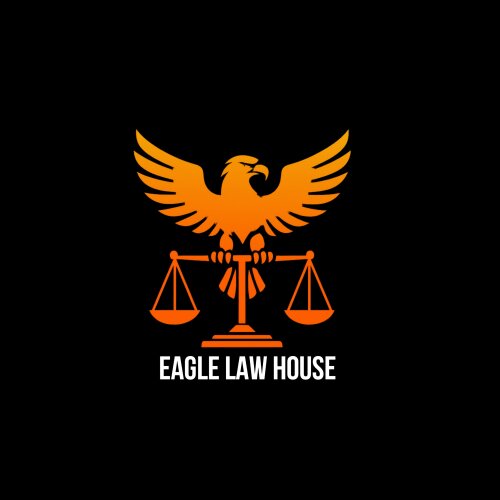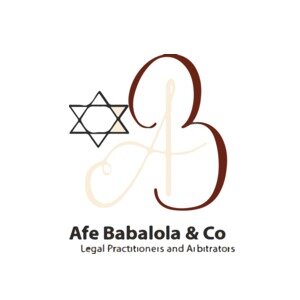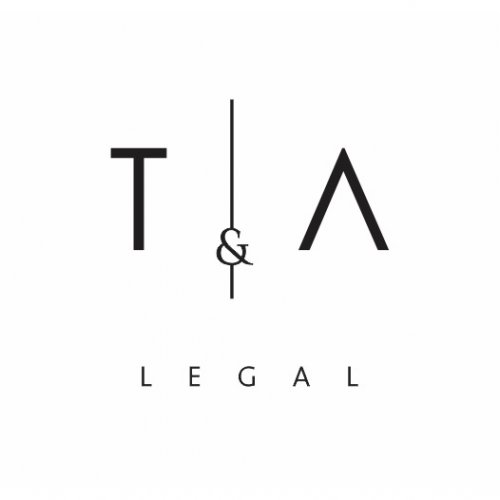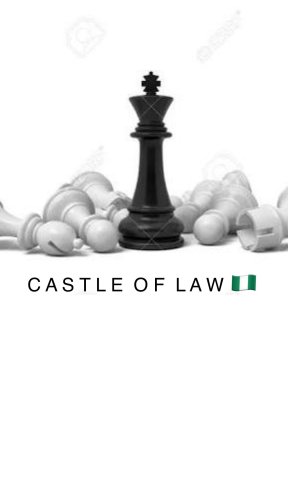Best Family Lawyers in Abuja
Share your needs with us, get contacted by law firms.
Free. Takes 2 min.
Free Guide to Hiring a Family Lawyer
List of the best lawyers in Abuja, Nigeria
Nigeria Family Legal Questions answered by Lawyers
Browse our 58 legal questions about Family in Nigeria and read the lawyer answers, or ask your own questions for free.
- Divorce or annulment
- Registry in 2024 Living separately waiting for other ceremonies to finalize the marriage Infidelity exposed 2 months after civil, end of relationship after several mediation and health concerns 6 months after civil
-
Lawyer answer by Eagle Law House
The Law recognizes only the marriage conducted at the registry, so you are legally married to your spouse. Infidelity is grave and usually a sufficient ground for divorce.
Read full answer - Divorce and child support
- My (ex) were legally married (registry) on the 19th of March 2011 (Southwest, Ibadan) and then afterwards had our nikkah on the 26th of same month and same year (Zaria, Kaduna). 13 years down the line, he took a second wife on the 22nd of November 2024 (nikkah in Kano)... Read more →
-
Lawyer answer by Eagle Law House
1. Your Marriage Status You were: - Legally married under the Marriage Act (registry marriage) on 19 March 2011 in Ibadan, AND - Subsequently had an Islamic nikah. Under Nigerian law, the statutory (registry) marriage takes priority. What this means:...
Read full answer - What are the process to file for divorce
- What are the process to file for a divorce
-
Lawyer answer by P.O OHIKHENA & Co
In Nigeria, the process for divorce can take a period of 9 months to one year depending on the grounds and if there are children in the marriage. We would need to have a proper discussion so we can determine...
Read full answer
Nigeria Family Legal Articles
Browse our 1 legal article about Family in Nigeria written by expert lawyers.
- How to File for Divorce in Nigeria: Step-by-Step Guide
- Nigeria recognises three main family law systems - statutory (Marriage Act and Matrimonial Causes Act), customary, and Islamic - and the rules that apply to your case depend on how you married and where you live. Statutory (court or church) marriages are generally monogamous and governed by the Matrimonial Causes... Read more →
About Family Law in Abuja, Nigeria
Family law in Abuja, Nigeria, is a crucial segment of the legal system dedicated to addressing issues related to family relationships. This includes matters such as marriage, divorce, child custody, adoption, property settlements, and domestic violence. Family law in Abuja is influenced by a combination of statutory laws, customary practices, and Islamic laws (for those who follow the religion). The legal processes are generally overseen by the judiciary and supported by specialized family courts to handle these sensitive cases. Understanding family law is essential for anyone navigating personal relationships and familial disputes in Abuja.
Why You May Need a Lawyer
There are numerous situations where individuals may require legal assistance in family matters. Common scenarios include seeking a divorce and requiring guidance through the legal process, negotiating child custody arrangements, or dealing with spousal support issues. In cases of domestic abuse, legal protection and remedies are often sought with the assistance of a lawyer. Additionally, legal advice is beneficial in adoption proceedings and settling inheritance and property disputes. Having a qualified lawyer can ensure that your rights are protected and your interests are fairly represented.
Local Laws Overview
The family legal framework in Abuja is shaped by both national and local legislations, as well as customary laws. Some of the key aspects include:
- Matrimonial Causes Act: Governs marriage dissolution, including provisions for divorce and separation, and child custody arrangements.
- Child Rights Act: Protects the welfare of children and outlines the rights and responsibilities of parents and guardians.
- Domestic Violence Act: Provides legal recourse and protection for victims of domestic abuse.
- Customary Law: Considers ethnic and cultural practices, particularly in marriage and inheritance.
- Sharia Law: Governs family matters for practicing Muslims, especially around marriage, divorce, and inheritance.
It is essential to understand how these laws apply to individual situations and this often requires navigating both statutory and traditional legal systems.
Frequently Asked Questions
What is the process for obtaining a divorce in Abuja?
To obtain a divorce, one must file a petition in the family court under the Matrimonial Causes Act, providing a valid legal ground such as adultery, unreasonable behavior, or separation.
How is child custody determined by the courts?
Court decisions on child custody are primarily based on the best interests of the child, considering factors such as parental capability, the child's needs, and any existing agreements between the parents.
Can traditional marriages be legally recognized?
Yes, traditional marriages are recognized under Nigerian law as customary marriages, provided they adhere to the customs of the communities involved.
What rights do children have under Nigerian law?
The Child Rights Act stipulates various rights for children, including the right to education, protection from abuse, and inheritance rights, ensuring their welfare and interests are prioritized.
How can victims of domestic violence seek protection?
Victims can apply for protection orders under the Domestic Violence Act through the courts, and they may also receive support from local NGOs and governmental bodies.
What steps are involved in adoption?
The adoption process involves a screening program by the social welfare department, a court hearing, and compliance with the Child Rights Act, ensuring the suitability of adoptive parents.
How are inheritance disputes resolved?
Inheritance disputes can be resolved either through formal court proceedings or customary arbitration, depending on the circumstances and the family’s traditions.
Can alimony or spousal support be claimed?
Yes, alimony can be claimed during divorce proceedings by demonstrating financial need, where the court evaluates both parties' circumstances before making a decision.
What role does Sharia law play in family matters?
For Muslims, Sharia law plays an integral role in marriage, divorce, and inheritance issues, operating alongside Nigeria's national laws.
Is a lawyer necessary for mediation in family disputes?
While not required, a lawyer can be invaluable during mediation to ensure that agreements are legally sound and protect your interests.
Additional Resources
For those seeking more information or assistance, the following resources may be helpful:
- Nigerian Bar Association (NBA): Provides lists of accredited family lawyers and legal aid.
- National Human Rights Commission (NHRC): Offers support and guidance for victims of family-related abuses.
- Federal Ministry of Women Affairs and Social Development: Offers resources for children and women in family matters.
- Legal Aid Council of Nigeria: Provides free legal assistance for eligible individuals.
Next Steps
If you require legal assistance in family matters, consider the following steps:
- Identify the specific nature of your legal issue and gather all relevant documents and information.
- Consult with a family law attorney to discuss your situation and explore your legal options.
- Evaluate the attorney's experience, fees, and your comfort level in working with them before proceeding.
- File any necessary legal documents or applications as advised by your lawyer.
- Attend all scheduled court hearings or mediations and follow the legal process to resolution.
Lawzana helps you find the best lawyers and law firms in Abuja through a curated and pre-screened list of qualified legal professionals. Our platform offers rankings and detailed profiles of attorneys and law firms, allowing you to compare based on practice areas, including Family, experience, and client feedback.
Each profile includes a description of the firm's areas of practice, client reviews, team members and partners, year of establishment, spoken languages, office locations, contact information, social media presence, and any published articles or resources. Most firms on our platform speak English and are experienced in both local and international legal matters.
Get a quote from top-rated law firms in Abuja, Nigeria — quickly, securely, and without unnecessary hassle.
Disclaimer:
The information provided on this page is for general informational purposes only and does not constitute legal advice. While we strive to ensure the accuracy and relevance of the content, legal information may change over time, and interpretations of the law can vary. You should always consult with a qualified legal professional for advice specific to your situation.
We disclaim all liability for actions taken or not taken based on the content of this page. If you believe any information is incorrect or outdated, please contact us, and we will review and update it where appropriate.
Browse family law firms by service in Abuja, Nigeria
Abuja, Nigeria Attorneys in related practice areas.

















